Syrians Continue Protests Against Assad And Iran
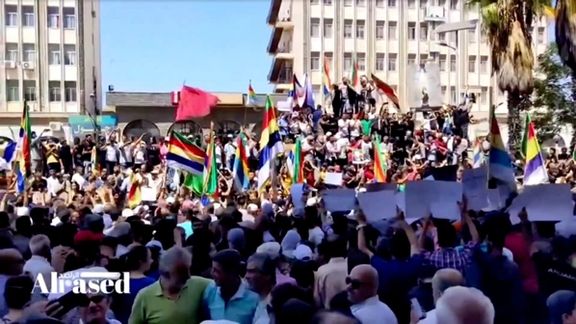
Syrian protesters continue to urge President Bashar al-Assad to step down and Iran leave the country, as economic conditions deteriorate.

Syrian protesters continue to urge President Bashar al-Assad to step down and Iran leave the country, as economic conditions deteriorate.
"Bashar out, Syria free!" shouted a large crowd in the southern Druze city of Sweida. "Syria is not a farm, we are not sheep," read another poster.
Dozens also gathered on Friday in the province of Daraa, where the 2011 protests kicked off. They carried the three-star flag emblematic of Syria's uprising, as well as signs criticising the role of Iran, which has supplied troops, weapons and money to Assad since 2011.
Syria is in a deep economic crisis that saw its currency plunge to a record 15,500 Syrian pounds to the dollar last month in a rapidly accelerating free-fall. It traded at 47 pounds to the dollar at the start of the conflict 12 years ago.
Demonstrations broke out in Sweida in August over the removal of fuel subsidies. Home province of most of Syria's Druze community, Sweida remained in government hands throughout the war.
Open criticism of the government remained rare in the areas it controls but as the economic situation grew worse, the discontent has gone public.
Residents of other government-held parts of Syria - where restrictions are tighter - have made more discrete gestures of protest to avoid detection by government forces.
In the coastal province of Tartus on Thursday, some residents held up small postcards reading "Syria belongs to us, not to the (ruling) Ba'ath party", according to photographs posted on activists' social media pages.
Reporting by Reuters
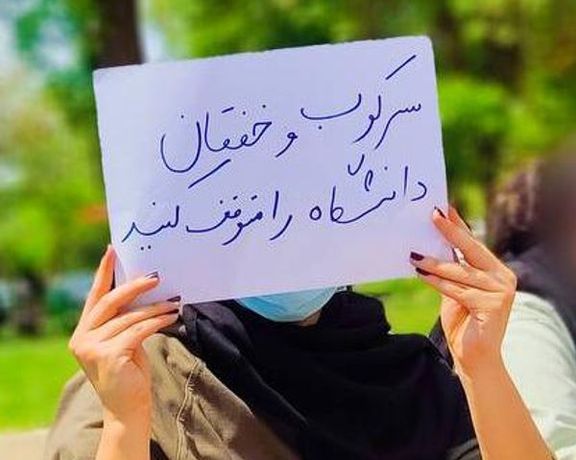
A student-led campaign has garnered over 13,000 signatures in opposition to the expulsion of Professor Ali Sharifi Zarchi from Sharif University in Iran.
The petition, initiated by students and alumni of the university, has gained traction in response to the removal of Zarchi, a faculty member at the institution.
Organizers of the campaign argue that purging who are professors described as "knowledgeable and caring" from the academic community not only undermines the foundations of education but also discourages students, potentially leading them to seek educational opportunities abroad.
Zarchi had previously been summoned by security authorities during the country's period of civil unrest and had recently made reference to a document suggesting that the government, under President Ebrahim Raisi, had initiated the recruitment of 15,000 pro-regime faculty members for dozens of universities.
Furthermore, this incident is part of a wider trend where numerous professors have faced expulsion from Iranian universities due to their critical viewpoints and support for students and the general public in recent weeks and months. Reports of more professors facing similar fates continue to emerge regularly.
One of the latest cases of expulsion involves Somayyeh Sima, a faculty member in the Water Engineering Department at Tarbiat Modarres University.
Student union councils across the country have also reported the expulsion of Hamid Reza Nazarinejad, an associate professor in the Faculty of Law at Gilan University and a former president of the Gilan Bar Association.
In addition, student associations have reported the "prohibition from teaching" of Hassan Bagherinia, a faculty member in the Psychology and Educational Sciences Department at Hakim Sabzevari University, describing it as a "new method of suppression."
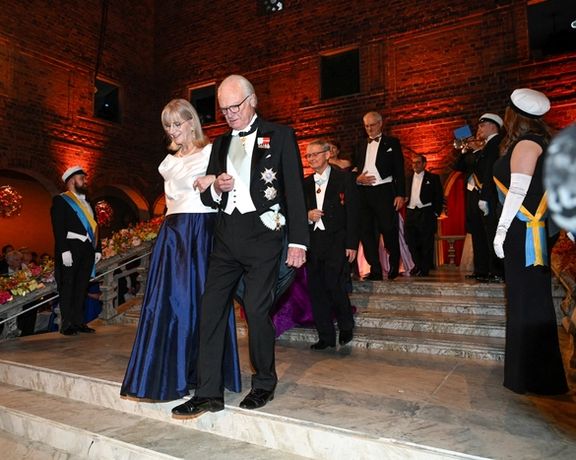
The Nobel Foundation said on Saturday it would not after all invite the ambassadors of Russia, Belarus and Iran to attend the Nobel Prize awards ceremony in Stockholm this year.
The announcement reversed an earlier decision to invite the three countries will be invited after widespread criticism.
Last year, the foundation left out the ambassadors of Russia and its ally Belarus because of Moscow's invasion of Ukraine, as well as Iran for its human rights violations. Iran also assists Russia in its invasion of Ukraine by supplying hundreds of kamikaze drones.
The foundation said on Thursday it would invite them, and Iran's ambassador, to this year's prize award ceremonies in December, commenting that it sought to include even those who did not share the values of the Nobel Prize.
That announcement prompted the leaders of several Swedish political parties to say they would boycott the ceremonies.
"We recognize the strong reactions in Sweden," the foundation said in a statement on Saturday.
"We, therefore, choose to repeat last year's exception to regular practice – that is, to not invite the ambassadors of Russia, Belarus and Iran to the Nobel Prize award ceremony in Stockholm."
The prize-winners are announced in early October and five of the six Nobel prizes are awarded in Stockholm every year after a nomination process that is kept secret for the next 50 years. The Nobel Peace Prize is awarded in Oslo where separate festivities are held.
Reporting by Reuters

Early on Saturday, a road accident in Iraq claimed the lives of at least 16 individuals, 12 of whom were Iranians, as reported by the Iraqi state news agency.
Additionally, the accident left thirteen people injured, and it took place on a road connecting two cities in Iraq's northern Salahuddin province. A local medical official confirmed that the injured were transported to hospitals in critical condition.
Millions of Iraqi Shias and pilgrims from various countries, including Iran, Azerbaijan, Pakistan, Lebanon, Afghanistan, Bahrain, Kuwait, and Saudi Arabia, have already arrived or are en route to the holy Shiite city of Karbala, situated approximately 100 kilometers (62 miles) southwest of Baghdad. They are are participating in the Arbaeen ceremonies, scheduled for September 6 this year.
Arbaeen, which translates to "fortieth," is a significant Shiite religious observance observed forty days after the Day of Ashura. It commemorates the death of Hussain ibn Ali, the grandson of Prophet Muhammad, who was killed in a power rivalry in 680 AD.
The Islamic Republic government perceives this event as an opportunity to exert influence in the region and encourages Iranian to visit Iraq with various incentives. These include providing free medical services and rest stops along the pilgrimage route, offering free internet during the journey and within Iraq, providing interest-free loans, granting 200,000 Iraqi dinars ($150) to pilgrims, and issuing special passports with reduced bureaucratic requirements. The allocation of affordable foreign currency, previously in the form of dollars or euros until this year, is funded from Iran's frozen assets in Iraq, set to be released as part of a prisoner exchange agreement with the United States.
Despite these incentives, the number of Iranians willing to undertake the Arbaeen Shiite pilgrimage is on the decline.
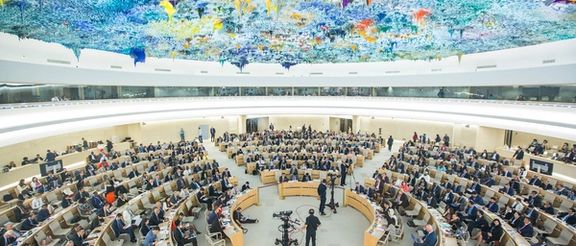
UN rights experts have expressed grave concern over Iran’s new draft hijab bill, with the first anniversary of Woman, Life, Freedom protests only two weeks away.
The legislation, crafted by a dozen hardline lawmakers after the full parliament declined to deliberate on it and assigned the responsibility to a smaller group, encompasses various penalties for women who appear in public without proper attire and complete headscarves.
Following the death of Mahsa Amini in police custody in September 2022, which led to nationwide anti-regime protests, the Iranian government temporarily relaxed its strict enforcement of hijab rules, with more women appearing in public wearing ordinary attire. However, since March, hardliners have intensified their rhetoric and actions to suppress women's defiance of hijab and regain lost ground. They have issued various instructions to government entities in this regard. The current hijab bill represents the culmination of their efforts to reestablish what they describe as "law and order."
“The draft law could be described as a form of gender apartheid, as authorities appear to be governing through systemic discrimination with the intention of suppressing women and girls into total submission,” the UN experts said on Friday. They emphasized that the proposed “Bill to Support the Family by Promoting the Culture of Chastity and Hijab” and existing restrictions are “inherently discriminatory” and may amount to gender persecution.

Iranian rights activists, some media outlets, former government officials and many commentators in Iran have been voicing their opposition to the new hijab law, which has not yet been officially promulgated.
In July, Sara Bagheri, a prominent attorney told local media that the bill violates individuals’ rights, including their right to security and will pose a threat to the reputation and dignity of thousands of women who want to choose their own style of clothing. She also questioned the heavy fines stipulated in the law and asked what would happen if a woman is unable or unwilling to pay.
The UN experts also stated, “The punishments include deprivation of a range of basic freedoms and social and economic rights, which will disproportionately affect economically marginalised women.”
Shima Ghousheh, a law expert, wrote in a commentary published by the reformist Etemad newspaper in July, "The country’s whole budget should be used to build prisons for women because many Iranians will not be able to pay these [heavy] fines and should be sent to prison." She pointed out that the punishments for unveiling or "improper" hijab are much heavier than those prescribed by law for financial crimes, including embezzlement and drug-related offenses.
The UN experts who issued the statement against the hijab law include Javaid Rehman, Special Rapporteur on the situation of human rights in Iran, several other UN special rapporteurs, and members of Working group on discrimination against women and girls.
“The weaponisation of “public morals” to deny women and girls their freedom of expression is deeply disempowering and will entrench and expand gender discrimination and marginalisation, with wider negative consequences for children and society as a whole,” the experts said.
“We urge authorities to reconsider the compulsory hijab legislation in compliance with international human rights law, and to ensure the full enjoyment of human rights for all women and girls in Iran,” the experts told the Islamic Republic of Iran.
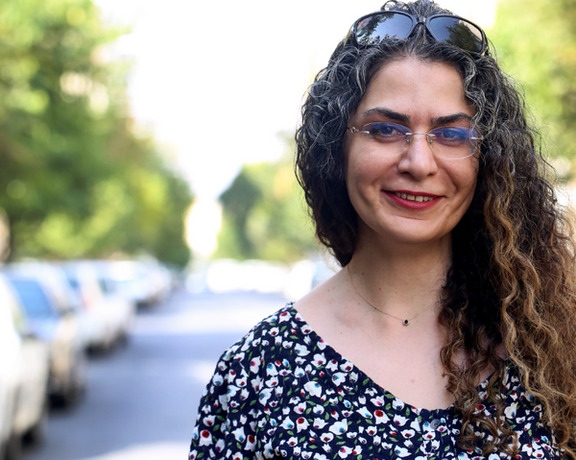
Bahareh Hedayat, an Iranian political prisoner in Evin Prison, has gone on hunger strike to protest repression and the death of another prisoner Javad Rouhi.
Javad Rouhi, a young Iranian protester who was one of the icons of the Women, Life, Freedom movement died in prison on Thursday.
Hedayat’s act coincides with the approaching anniversary of the Iranian uprising in September 2022 after Mahsa Amini died in hijab police custody.
In a poignant letter received by Iran International, Hedayat laments the Iranian government's efforts to normalize the loss of countless young lives.
In her statement, Hedayat articulates her motives: "I, in obedience to my conscience and in its defense, protest against the tragic death of Javad Rouhi in prison and express my support for the year-long, unyielding resistance of women in my country for freedom. I hereby declare my hunger strike, commencing from Friday evening. May this humble contribution serve the cause of freedom for Iran, a nation weary of tyranny."
Furthermore, Hedayat underscores the government's attempts to manipulate and distort the collective conscience, employing tactics that include the spilling the blood of the youth, suppression of university students, dismantling of academic institutions, and subjecting grieving families to relentless persecution.
Hedayat further condemns the accusations of collaboration with foreign governments against Niloufar Hamedi and Elaheh Mohammadi, two imprisoned journalists who first reported Mahsa Amini's death.
Hedayat, a dedicated activist, played a crucial role in the One Million Signatures campaign aimed at reforming discriminatory laws against women in Iran. Throughout her activism, she faced multiple arrests and periods of imprisonment.






